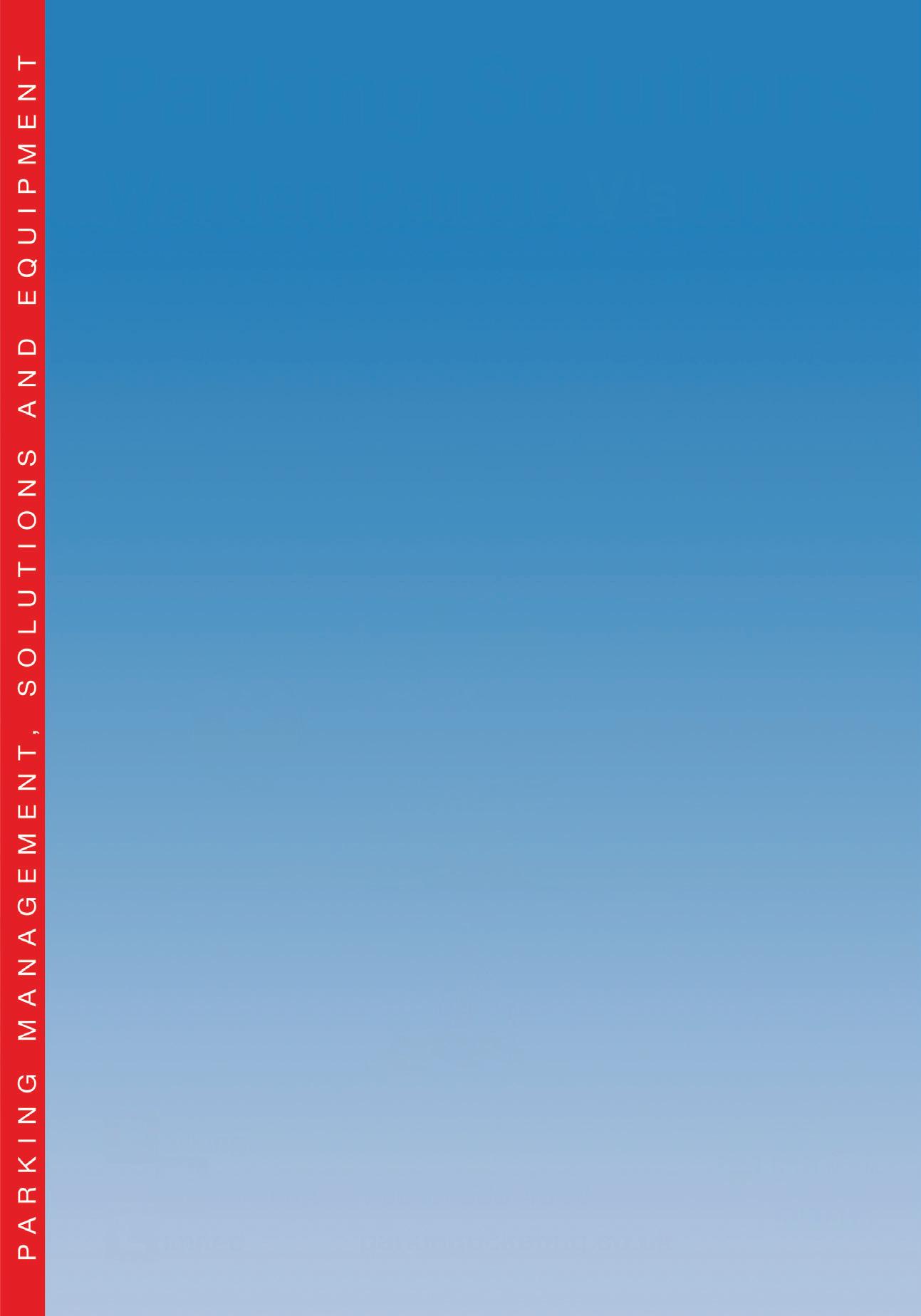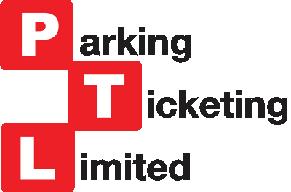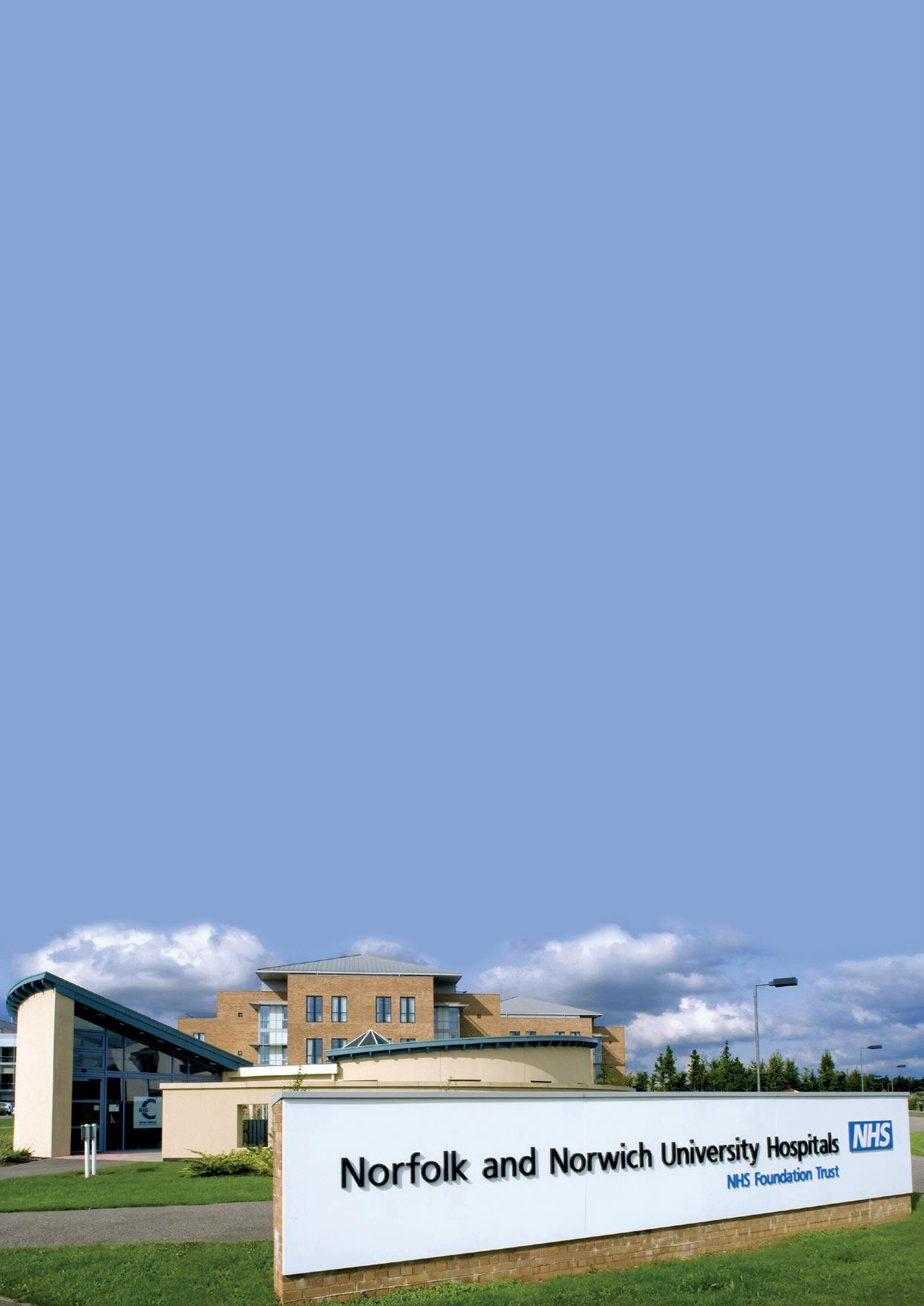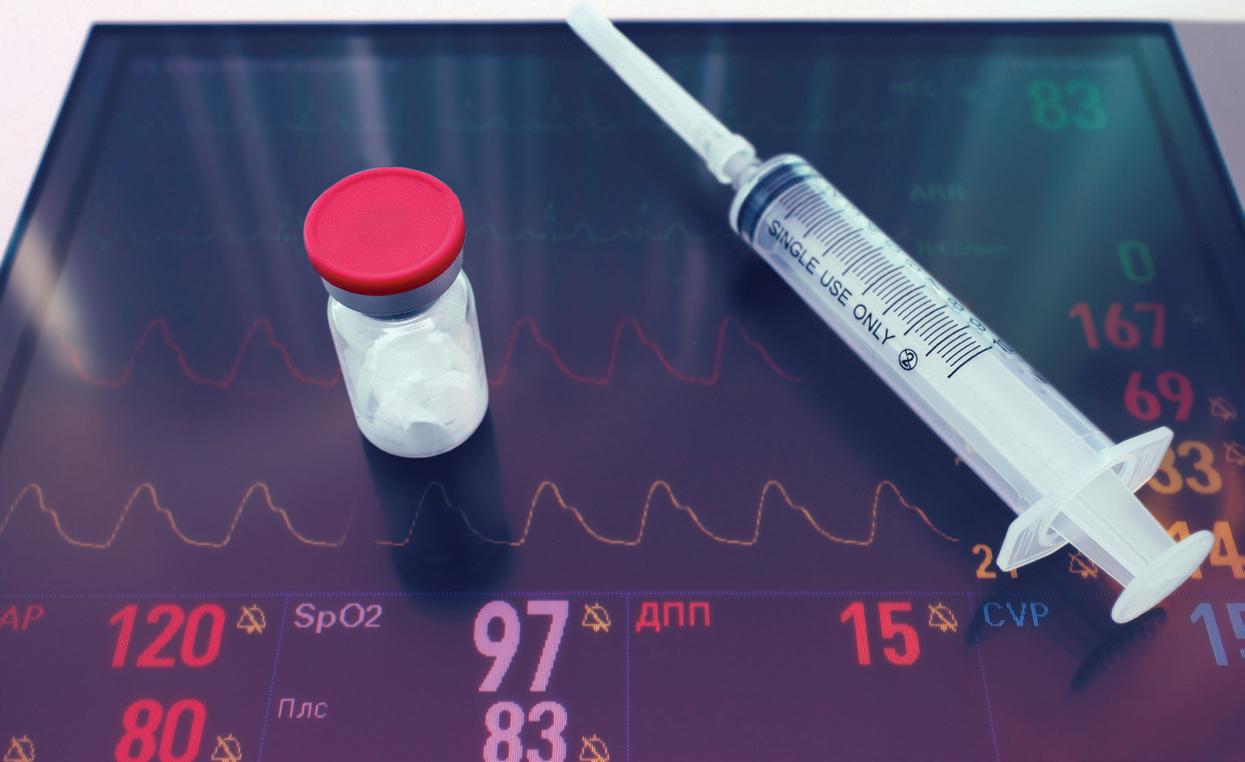
10 minute read
Parking
from Health Business 20.1
by PSI Media
Changes are afoot in parking across trusts in England
Kelvin Reynolds, director of Corporate and Public Affairs for the British Parking Association, explains why fair for all, but not free for all, may be the best solution to hospital parking
For years newspapers, politicians and campaigners have told us that paying for parking at hospitals is a tax on the sick. There have been many attempts to scrap healthcare parking charges in England including campaigns by MP’s, Private Members Bills, charities and of course trade unions. We absolutely understand why, but is it that simple?
Parking facilities at hospitals are usually oversubscribed and demand often outstrips supply. Free parking usually increases demand too. We have always encouraged hospitals to consider the outcome they wish to achieve when planning their parking provision to ensure it is managed for the benefit of everyone, whether they’re a patient, visitor or staff. Additional hospitals and their parking operators must work together to ensure parking is used properly by those it is intended for and not misused. This all costs money. Where does that come from? parking in hospitals in England: disabled people; frequent out-patient attenders; parents of sick children staying overnight; and staff working night shifts.
We welcome this more measured approach by government for England, which is so much better than the free-forall that has been created in Scotland and Wales, and we now sit on the Department of Health and Social Care Hospital Car Parking Programme Board to support them in developing the proposals. This Manifesto commitment is easy to say but more challenging to achieve, without many unintended consequences. Our aim is simple: to help the government devise and deliver a solution
which helps to make hospital parking better for everyone. We know when parking charges were abolished in The NHS has more special requirements and considerations than most organisations offering car parking facilities
Recent exemptions The UK government announced recently that from April 2020 four groups of people will no longer be charged for

hospitals in Scotland and Wales, patient accessibility didn’t improve; instead spaces were taken by commuters and staff to the detriment of visitors and patients. And where parking isn’t managed properly it spills onto yellow lines, grass verges and nearby residential streets. In some cases, bus companies refused to offer a service because they couldn’t get through.
The NHS has more special requirements and considerations than most organisations offering car parking facilities. Besides the obvious emergency services and A&E access, hospitals have the unenviable task of juggling the interests of patients and visitors with the needs of healthcare professionals, who understandably want convenient, safe and affordable parking when they come to work. Keith Fowler, chair of the BPA Healthcare E
All aspects of parking control and enforcement using the latest technology and software on the market
Warden Patrol Ticketing
Parking Charge Notices have been widely used throughout the UK for many years by local authorities and now, housing associations, managing agents and private land owners can also benefit from this enforcement system.
Pay and Display Machines (no mains power supply required)
We can supply and install pay and display machines, which take cash or credit card payments. These are battery operated machines with integrated solar panels, therefore no mains power supply is required.
ANPR Ticketing

ANPR (Automatic Number Plate Recognition) uses hi-tech CCTV cameras that are monitored using wireless GPRS to automatically issue Parking Charge Notices.
DIY Ticketing
This is the enforcement method that puts you in total control and can be tailored to any clients needs, from single to multiple spaces.
Vacant Land Wanted
Start making money from your wasted car parking spaces or vacant land. We could turn that wasted space into a cash generating asset by charging people to park there. Line marking can also be arrange if required.

t 0333 533 4540 e info@parkingticketing.co.uk www.parkingticketing.co.uk
Special Interest Group, and head of facilities services at an English NHS trust, said: “Parking is always at a premium. Staff parking is often a cause of anxiety with colleagues wishing to park on site and arrive at work, on time. Clinical services cannot be delayed, and patients must be ready at stated times for appointments. The juggling of priorities is therefore a skill the team responsible for parking must apply when deciding how best to manage parking at healthcare locations.”.”
Free at the point of use Like most NHS medical services, some car parks may be free at the point of use but someone, somewhere is paying for their upkeep and maintenance. If they are patrolled to keep them safe someone is paying for that too. This so-called free parking is always paid for - by someone else. Additionally, is free parking fair on those who travel to hospital using public transport and continue to pay? Far from being a tax on the sick, it could be argued that free parking is a subsidy for the motorist… It is imperative the proposal being developed by the government to implement its manifesto commitment of ‘free parking’ is well designed and easy to understand; each of the four key groups, namely, disabled people, parents sick children, frequent outpatients and night-shift staff, need to be well-defined in simple and straightforward

language and clearly understood, to minimise confusion and ambiguity. People need to know whether they are included in

the scheme of concessions or not, otherwise complaints and calls for clarity will outweigh any praise precipitating from this policy. We should be learning from the experience of hospitals where some of these concessions already exit and good local implementation plans need to be devised by hospitals and their parking operators to provide solutions that meet local needs. And of course, paramount is a clear public awareness communicated at a national level across England and providing information on who qualifies and what the ‘offer’ is. Additionally, today we strongly advise that all hospitals in England who are planning, or about to introduce new ways of controlling parking or new charges, to consider how they manage it for these four groups of people currently. In a world focused rightly on climate change we also advocate that this ‘Free Parking’ strategy be considered as part of hospitals’ Sustainable Travel Plan. This will demonstrate a commitment to reducing congestion and pollution near hospitals and promote sustainable travel. The government has also said it will consider hospital car parking capacity across the country and how improved technology will reduce burdens for hospitals. This is a much bigger challenge especially as hospital trusts have been under pressure to release surplus land for much needed housing in recent years. Either way, we remain ready to aid and assist government to achieve an outcome that works for everyone. Fair for all, but not free for all. L
What happened to Axe the Fax in the NHS? The deadline for Axe the Fax has passed. Health secretary, Matt Hancock has officially banned the NHS from buying fax machines and April 2020 is the deadline for the phasing out of all fax machines throughout the NHS. Matt commented that “because I love the NHS, I want to bring it into the 21st century and use the very best technology available. We’ve got to get the basics right, like having computers that work and getting rid of the archaic fax machines still used across the NHS when everywhere else got rid of them years ago.”
Why is the NHS still using the fax machine? With almost 9,000 fax machines owned by NHS hospital trusts, transitioning away from them is a monumental task. However, it looks like the April deadline will not be met by a large number of NHS Trusts, with research suggesting that just 42% of the fax machines had been removed according to September 2019 figures. The problem with change is that without a suitable replacement process or transition plan, the easiest thing to do is continue as you were. Fax has become an integral part of the healthcare process for decades now, and the move to digital, needs care, planning and training to make the transition effective, whilst delivering the raft of benefits promised by the new technologies. The fax machine has been around for many decades and relies on the conversion of a scanned document into an audio tone which can be transmitted by a phoneline, converted back into a document and then printed out. It is slow, inefficient, wasteful, offering no audit trail and making document sharing difficult.
Key benefits of digitisation include: ■ Centralised storage for documents with enhanced security, access control and instant retrieval. ■ Business process agility leading to productivity gains and cost savings. ■ Enhanced compliance with regulatory guidelines throughout all departments. ■ Faster access to patient information, potentially leading to improved patient outcomes, better patient engagement, and better access to critical information across the care continuum.
How do we digitise paperwork? Fujitsu have a range of scanners, designed with the healthcare industry in mind to aid the transition to digital. Highlight models with their range include the numberone selling fi-7160; a best-in-class scanner designed for high quantity batch scanning and reliable performance. The Fujitsu fi-800R is a perfect desktop solution for GP and hospital reception desks, with a footprint smaller than the size of an A4 sheet of paper and the ability to scan ID and everyday documents. The intuitive ScanSnap iX1500 is an easy to use scanner for improving admin processes and the ScanSnap iX100 ideal for capture in the community. At the higher end of the range are models such as the fi-7900 capable of scanning and processing thousands of patient records a day.
Why is there so much paperwork in the NHS? Healthcare generates many sources of paper-based information, including documents, x-rays, medical notes and records for patients, as well as policies, reports and regulatory documents. Storing and managing all of this paper based information takes a lot of energy and space, not to mention the time taken to archive and retrieve these documents. Data security is also a great concern, with significant penalties for violation or loss of information, which could result in impacted patient care.
How can we transition away from the use of the fax machine? The implementation of document scanning could help NHS Trusts achieve significant cost savings and improved business processes whilst improving the quality of patient care. Through the scanning and digitisation of documents, paper based information can be converted into a digital system accessed via computers, tablets and even mobile phones. With appropriate document management software, processes can be automated and accelerated, and access to data can be controlled and tracked to ensure the privacy of patient information and to produce more accurate audit trails for compliance. This digital data can be stored off-site in the cloud protected from fire, flood Use of new technology in the NHS is advocated by the UK Government The UK government are now offering support for modernisation in the NHS. Matt Hancock, has announced a new digital aspirant programme, to encourage the whole of the NHS to make use of the latest technology. Matt stated that “We’re going to use digital technology to ease the burden on staff, give people the tools and information to manage their own healthcare, and make sure that patient data can be safely accessed wherever and whenever it’s needed across the system.” “It’s quite simple: better tech means better health and social care.”
Next steps To find out more about Fujitsu scanners and document management systems, please visit http://emea.fujitsu. com/scanners or call 020 8573 4444. The money saved through the investment in improved efficiencies and processes may mean the new investment costs are recouped within a much shorter timeframe than you imagine!
Scanning solutions for Healthcare

By scanning and deploying a document management solution, healthcare organisations can more efficiently manage all their paper and digitally born material.
For archiving and digitizing large volumes
Administrative capture in the back office
fi-7900
Scan securely in the community
iX100
Fujitsu Scanners are available through NHS Supply Chain, contact them at office.solutions@supplychain.nhs.uk
Decentralised capture within the front office
fi-7160 SP-1120
Ideal for I.D. capture
Web based document capture and network scanning fi-800R
fi-7300NX
PaperStream IP - high quality image enhancment
PaperStream Capture - enhanced capture










